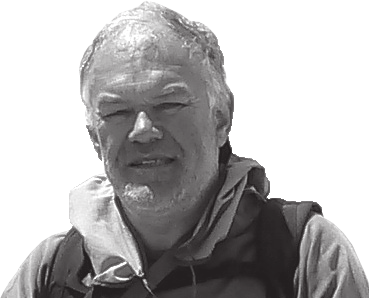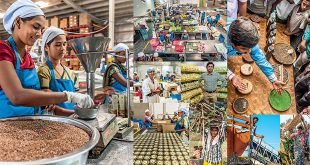A première in Portugal: a closed water and nutrient cycle; the production of strawberries and lettuce, pumpkins and tomatoes (and much more) and freshwater fish all year round. One supports the other, the fish support the growing of vegetables with their natural fertiliser, and the vegetables support the fish with treated, reusable water. The water circulates from one tank to the next and is pumped back again, all day long, 24 hours a day, by solar-powered pumps. This is known as aquaponics, and this form of organic, urban agriculture is advocated and financially supported by the EU.
On a drawing board in Torres Vedras, 50km north of Lisbon, the plan for the first commercial aquaponics centre in Portugal is coming together. The instigator, the trainer João Cotter, described the project that will involve funding of around 1.1 million euros and has been in preparation for five years to ECO123 in this way: “we produce vegetables using hydroponics and fish in aquaculture, which contribute the fertilizer for the plants. We will bring both together and open a shop, which will sell fish (to order) and vegetables over the counter, and a restaurant that will serve fresh fish and vegetables from our own organic production. We will also be able to supply our fresh organic produce to customers, as well as other restaurants, markets and consumers. In addition, short distances ensure that business is done in an economical and ecological way.”
The lecturer and project manager is seeking investment in his start-up company from Mar 2020 and is expecting financial support from there of 35 to 40 percent, i.e. between 400,000 and 440,000 euros. He wants to raise the rest of the capital on the open market: from equity capital and capital from interested institutional and private investors and through crowd investing. Torres Vedras council is also supporting the project with a plot of land. The Marine and Environmental Sciences Centre (MARE) of the University of Lisbon advises the pioneering project, which represents a closed ecosystem, without producing wastewater or other waste.
Fish n’ Greens is the name of the limited company that will be founded. It is designed to produce 42 tonnes of fish and 60 tonnes of vegetables per year, and to train 600 course participants. A website that already exists www.fishngreens.pt gives information about the future company’s six goals:
- Health: fish produced in symbiosis with no use of chemicals or hormones;
- Full flavour: growing of vegetables, e.g. aromatic salads, fruit and vegetables, in an urban context, without pesticides and with low water consumption;
- Training: workshops for children, school classes, students and the creation of traineeships;
- Research: partnerships with research establishments, sharing of scientific expertise, crop testing and pilot projects for other facilities;
- Sustainability: proximity to the consumer, transparent way of working, minimal ecological footprint, environmentally sustainable, great potential for tourism;
- Urban agriculture: sales of fresh fish and vegetables to local consumers in the town through their own organically certified shop and restaurant.
 Eco123 Revista da Economia e Ecologia
Eco123 Revista da Economia e Ecologia


